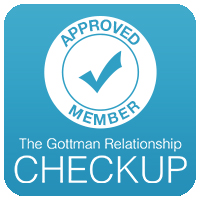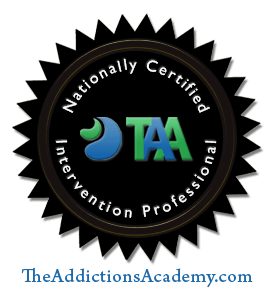Executive Coaching-Leadership Augusta GA
Empowering Leaders to Achieve Excellence and Drive Success.
Executive coaching is a professional development strategy that involves a coach working with an executive (or any other high-potential employee) to unlock their potential, enhance their performance, and achieve their goals. The primary aim of executive coaching is to improve leadership and management performance, often by developing the individual’s self-awareness, emotional intelligence, and capacity to influence others.
Coaching relationships have a similar dynamic, no matter the niche. A coach’s role is to inspire and support their client as they work toward their full potential — and beyond. With their help, you learn to see yourself more clearly — and with compassion — and discover the extent of your capabilities.
Executive Coaches
Maria Morris, MA, MBA, SHRM-CP
- Professional in Human Resources (PHR)/ SHRM-CP
- eCornell – ADP Foundations in Human Resources Certification
- Certified in Crucial Conversations
- Myers Briggs Type Indicator Qualification
- Active member of SHRM
- Member of Global Women in Leadership
- Graduate of Women Unlimited LEAD Program
Maria is an Executive Coach with over 15 years of experience in leadership development,organizational transformation and executive performance enhancement. She is highly knowledgeable in Women’s Issues with years of practical field experience empowering women. Her passion for women’s advocacy began during her undergraduate studies at Marywood University where she earned a bachelor’s degree in industrial and organizational psychology.
Maria went on to earn her master’s degree in industrial/organizational psychology from Fairleigh Dickinson University. She also holds a master’s degree in business administration with a concentration in Human Resource Management.
Stephen Cutchins PhD
- Life Coaching
- Spiritual Guidance
- Marriage / Relationship Counseling
- Executive Coaching
- Leadership Development
Dr Cutchins is a Full Focus Planner Pro, trained to help executives enhance productivity and goal achievement. As a Certified Life Coach, advanced biblical counselor, and Prepare/Enrich Facilitator, Dr. Cutchins empowers individuals and couples to achieve their goals and strengthen their relationships.
Currently completing his PhD in Leadership Studies at Dallas Baptist University, Dr. Cutchins combines his academic pursuits with practical experience, integrating spiritual guidance into coaching/counseling approach. With a passion for holistic transformation, he inspires others to reach their full potential in leadership and personal growth.
12 types of executive coaching.
Before jumping into your search for an executive coach, here’s an introduction to the different types. Take a look at this list and see which best aligns with your unique needs and aspirations.

- Performance coaching: A performance coach provides strategies and tactics to help employees execute their tasks more effectively. They focus on elevating clients’ skills and techniques so they’re more effective at what they do.
- Developmental coaching: This one’s for the personal growth enthusiasts. It’s about expanding your capacity to juggle roles, navigate complexity, and conquer challenges.
- Skills coaching: Got a skill you want to polish? That’s where Skills Coaching comes in. Be it public speaking, time management, conflict resolution, or any other professional skill, this type of coaching has got you covered.
- Career coaching: If you’re contemplating a career transition or aiming higher on the ladder, Career Coaching can guide you through your career goals, options, and paths.
- Onboarding coaching: New to an organization or role? Onboarding Coaching will help you blend into the company culture, understand your duties, and hit the ground running.
- Transformational coaching: This digs a little deeper, focusing on changing underlying beliefs and attitudes that shape behavior. Get ready for profound shifts in your perception, thinking, and actions.
- Team coaching: This isn’t a solo journey. Team Coaching involves guiding an executive and their team towards improved teamwork, communication, and performance.
- Strategic coaching: For those with an eye on the horizon, Strategic Coaching assists in devising and executing strategic plans, setting long-term goals, and determining the steps to achieve them.
- Organizational or business coaching: Using coaching skills, business and organizational coaches support companies by assisting them in identifying organizational goals and building a plan to achieve these targets. They usually work holistically, improving productivity and performance across the entire operation.
- Management coaching: Newcomers to management often need to build a new skill set. That’s where a management coach comes in: they train leaders-to-be in planning, organization, and implementation skills while enhancing their resource and people management competencies.
- Executive team coaching: Teamwork is often challenging. Executive team coaching takes a bilateral approach to support working groups by improving communication and collaboration to boost overall performance. Leaders learn to manage their teams effectively while team members become more productive. The process involves coaching, teaching, facilitation, mediation, and positive psychology. <.li>
- Executive leadership coaching: A leadership coach works with promising employees to develop the necessary skills to make better decisions and become the company’s next generation of executives.
Executive leadership coaching is characterized by seven benefit-generating attributes:
- Acquiring and offering feedback
- Recognizing development opportunitiesk
- Developing awarenessk
- Generating solutions by asking the right questionsk
- Encouraging lifelong learningk
- Offering long-term supportk
- Establishing a system of accountability and monitoring progressk
Benefits of executive coaching
Executive coaching offers a multitude of benefits, both at the individual and organizational level:
- Performance enhancement: Executive coaching can lead to a significant increase in individual performance, up to 70%, which is often reflected in goal attainment and clearer communication1.
- Boost in team performance: Beyond the individual, executive coaching has also been shown to result in a 50% increase in team performance.
- Leadership skills development: Executive coaching plays a crucial role in developing leadership skills such as communication, decision-making, and emotional intelligence.
- Personal benefits: Participants of executive coaching have reported numerous personal benefits, including heightened self-awareness, improved self-regulation, higher levels of empathy, a boost in cognition at work, increased motivation, and enhanced social skills.
- Goal setting and achievement: An executive coach helps individuals identify their dreams and ambitions and set SMART goals with achievable milestones and concrete deadlines.
These benefits underscore the transformative impact of executive coaching on an individual’s professional and personal growth and an organization’s overall success.








